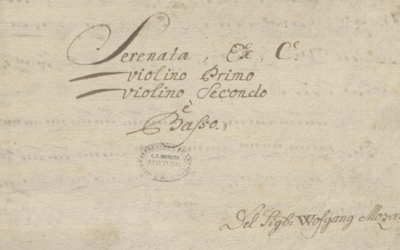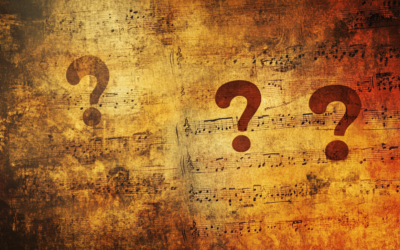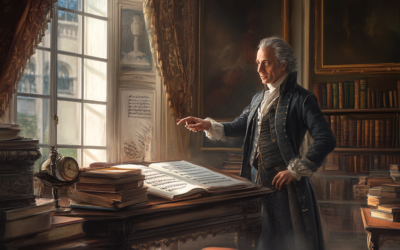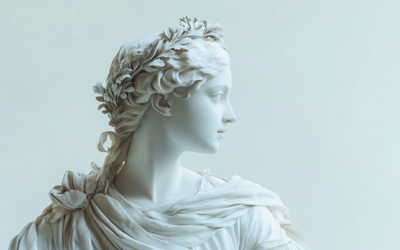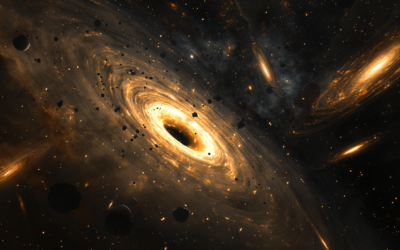A Modern Premiere in Germany
Pacini’s Medea Brought to Life
Giovanni Pacini’s Medea, revised by Luca Bianchini and Anna Trombetta, made its modern premiere in Germany at the Theater für Niedersachsen. This monumental work was performed in full, marking a triumphant revival of Pacini’s forgotten genius.
Mozart: The Fall of the Gods
This book offers a fresh and critical look at the life of Wolfgang Amadeus Mozart, challenging the myths that have surrounded him for centuries. We strip away the romanticised image of the “natural genius” and delve into the contradictions within Mozart’s extensive biographies. Backed by nearly 2,000 meticulously sourced citations, this work invites readers to explore a deeper, more complex understanding of Mozart. Perfect for those who wish to question the traditional narrative, this biography is a must-read for serious music lovers and historians.
"Pacini’s Medea returns to the stage, reminding us that some of the most powerful operatic works have yet to receive the recognition they deserve."
@MozartrazoM
For the first time in Germany, Giovanni Pacini’s monumental opera Medea has been performed in a modern premiere at the Theater für Niedersachsen in Hildesheim. This captivating work, filled with both horror and compassion, was masterfully revived thanks to the new edition transcribed and revised by musicologists Luca Bianchini and Anna Trombetta. The edition, comprising nearly 1,500 pages of score and sheet music, restores the grandeur of Pacini’s forgotten masterpiece.
The opera, which was performed in its entirety under the baton of Maestro Florian Ziemen, received enthusiastic acclaim during its premiere, with several more performances scheduled in the weeks following. Originally premiered in 1843 to great success, Medea once again demonstrated its powerful impact on audiences, blending dramatic intensity with Pacini’s masterful composition.
This modern revival highlights how Pacini, unjustly neglected in music history, deserves to stand among the greats of opera. The character of Medea, both terrifying and pitiful, remains one of the most complex and fascinating figures in opera, and Pacini’s setting captures every nuance of this tragic tale.
You May Also Like
Mozart’s Serenade? A New Discovery? Really?
In Leipzig, what was thought to be a new autograph of Mozart turned out to be a questionable copy. Why are such rushed attributions so common for Mozart, and why is it so hard to correct them when proven false?
Mozart’s K 71: A Fragment Shrouded in Doubt and Uncertainty
Mozart’s K 71, an incomplete aria, is yet another example of musical ambiguity. The fragment’s authorship, dating, and even its very existence as a genuine Mozart work remain open to question. With no definitive evidence, how can this fragment be so confidently attributed to him?
Unpacking Mozart’s Early Education
The story of Ligniville illustrates the pitfalls of romanticizing Mozart’s early life and education, reminding us that the narrative of genius is often a construct that obscures the laborious aspects of musical development.
The False Sonnet of Corilla Olimpica
Leopold Mozart’s relentless pursuit of fame for his son Wolfgang led to questionable tactics, including fabricating a sonnet by the renowned poetess Corilla Olimpica. This desperate attempt to elevate Wolfgang’s reputation casts a shadow over the Mozart legacy.
Mozart’s K 73A: A Mystery Wrapped in Ambiguity
K.143 is a prime example of how Mozart scholarship has turned uncertainty into myth. With no definitive evidence of authorship, date, or purpose, this uninspired recitative and aria in G major likely originated elsewhere. Is it time to admit this is not Mozart’s work at all?
A Farce of Honour in Mozart’s Time
By the time Wolfgang Amadeus Mozart received the Speron d’Oro, the once esteemed honour had become a laughable trinket, awarded through networking and influence rather than merit. Far from reflecting his musical genius, the title, shared with figures like Casanova, symbolised ridicule rather than respect.


